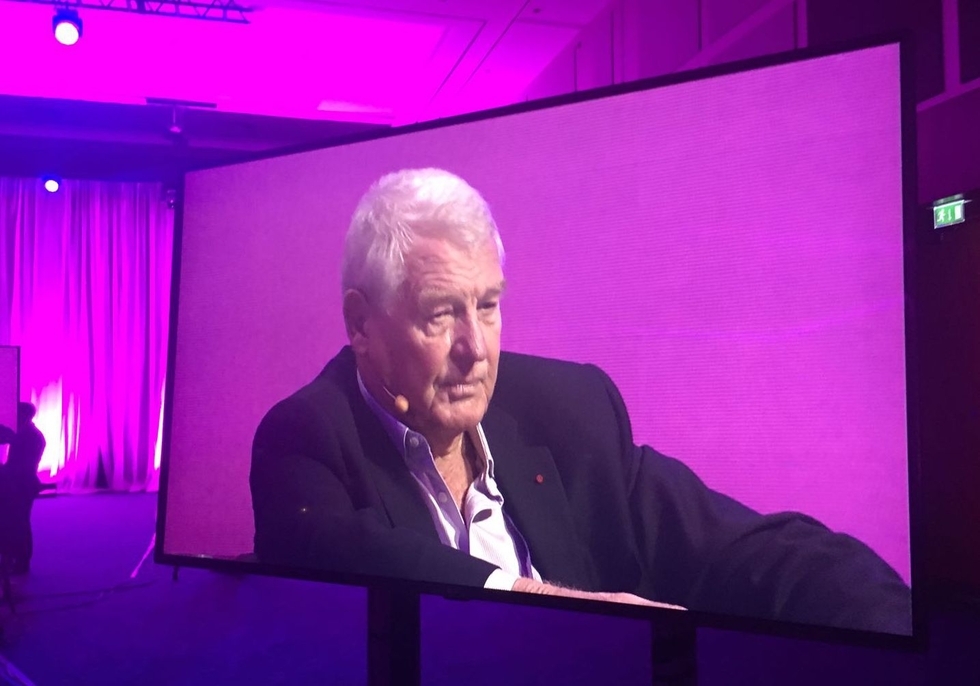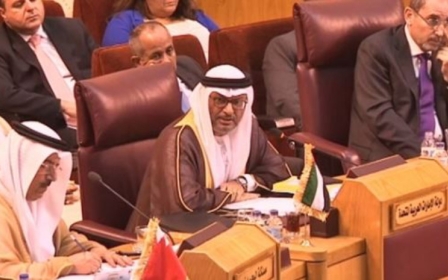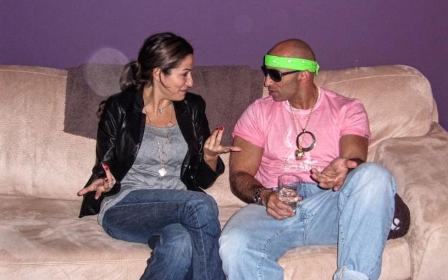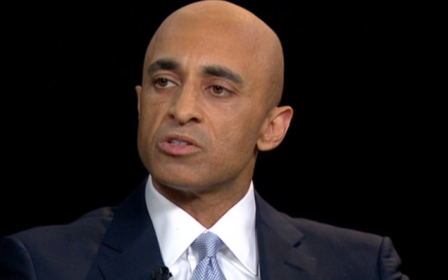UK must release report on Saudi, Qatar terror links, says Ashdown

Theresa May must release a suppressed Home Office report which potentially links Qatar and Saudi Arabia to the promotion of Islamist extremism, a senior British politician has said.
Speaking to Middle East Eye on the sidelines of a Qatari opposition conference in London, Paddy Ashdown, the former leader of the UK’s Liberal Democrat, called it “scandalous” that the PM had blocked the Home Office publication, which examined whether Gulf states funded Islamist extremism in the UK.
“I don’t think you can have a dialogue [about terrorism] if you hide the facts, and I don’t think you can sweep important facts under the table,” said Ashdown,” who has focused on the Middle East since he worked on the Balkans peace process as former international high representative to Bosnia-Herzegovina. “I don’t think you can separate one [Qatar] from the other [Saudi Arabia].”
Ashdown said that while he was not directly accusing Doha or Riyadh of supporting terrorism, individuals within both countries were “funding Salafists and the Wahhabis”.
Later Iain Duncan Smith, former leader of the Conservative party, said: “The British government’s position is very clear, it wants stability. It’s not calling for regime change [in Qatar]. Let’s get stability and get the heat out of the Gulf crisis.”
He added that London had not seen evidence of Qatari support for terrorism, and that if there was any then it must be produced. “We want to see it,” he said. “The prime minister has said that if there is evidence, she wants to see it”.
'Qatar is no different from other Gulf states'
His comments came at the Qatar Global Security & Stability Conference in east London on Thursday, where Qatari opposition figures, journalists and media gathered amid tight security to discuss the future of the state and the introduction of a constitutional monarchy.
Earlier, Ashdown told the conference audience that while Western nations must balance pragmatism and principle, is was clear that Qatar and Saudi Arabia have moved into “difficult territory” by supporting terrorist organisations.
He was joined on the panel by Conservative MP Daniel Kawczynski, retired US Air Force General Chuck Wald, and Bill’s Clinton assistant secretary of state James Rubin.
Ashdown said: “In a nation like Saudi Arabia, do you really believe that businessmen would be able to fund a terrorism organisation if the government did not want that to happen?”
'In a nation like Saudi Arabia, do you really believe that businessmen would be able to fund a terrorism organisation if the government did not want that to happen?'
- Paddy Ashdown
The event, attended by an estimated 150 delegates, including staff, at the £400-a-night InterContinental Hotel, saw a string of speakers attack Qatar’s human rights record, alleged support for terrorist groups and relationship with regional rival Iran.
The conference has faced criticism that it is being backed by Qatar’s regional rivals and is seeking “regime change” in the country. The event was fronted by Khalid al-Hail, a 29-year-old businessmen who says he fled Qatar in 2014 after being tortured. It was supported by the British Monarchist Society and Foundation, an obscure British royalist organisation and promoted by Bill Clinton’s former spin doctors.
But critics have said that the event is being backed by Qatar’s regional rivals, who want “regime change” in the country.
Analysts have described the event as a “cack-handed” attempt at promoting a coup in Qatar, amid a farcical sideshow in an information war raging across the Gulf.
Opening the event, Hail accused Qatar of supporting terrorist groups, including al-Nusra and al-Qaeda, and called upon the country’s leaders to introduce democracy and a constitutional monarchy.
He said: “I am not exaggerating when I say we are making history today. We are gathered here with a galaxy of politicians and experts to look at the situation in Qatar. I am just one of many who has been arrested and tortured by the regime.
“Democracy is not going to be easy, but I am here in front of you. I represent the voice that is not being listened to in Qatar, the voice of the Qatari people asking for freedom and dignity.”
Opposition is banned in Qatar, where the hereditary emir – currently Sheikh Tamim bin Hamad al-Thani - holds all executive and legislative power. Political parties are banned, according to democracy watchdog Freedom House.
Since June, Saudi Arabia, Bahrain, the UAE and Egypt have imposed sanctions on Qatar, accusing it of financing extremist groups and allying with Iran, arch foe of the Gulf Arab states - allegations Doha denies.
'On one hand Qatar wants relations with the West and America, but [is] also supporting terrorists that target these countries'
- Dov S Zakheim, former US defence official
Speaking at the event Dov S Zakheim, a former US defence official under President George W Bush, said that the root of the problem is that Qatar talks to “everybody and anybody” in the Middle East.
“The problem of trying to do that is when you are dealing with Iran, you are playing with fire,” he said. “I don’t like the fact that Qatar is supporting al-Nusra and the [Muslim] Brotherhood, and has links with Hamas, which is a threat to Israel.
“On one hand Qatar wants relations with the West and America, but [is] also supporting terrorists that target these countries.”
Among other high-profile speakers and panellists at the event were former US ambassador to the United Nations Bill Richardson; Israeli Brigadier General Shlomo Brom; former Al Jazeera journalist Mohamed Fahmy, who was jailed by the Egyptian government; and BBC World Affairs Editor John Simpson. Iain Duncan Smith, former leader of the UK’s ruling Conservative Party, was due to speak at time of writing.
Brom was among those who said it was natural for Qatar to maintain communications with militant groups across the region, adding that he did not think Qatar was “directly supporting terrorism”.
He said that on the issue of supporting militant groups “Qatar is no different from other Gulf states” and that it was “useful to Israel” to allow discreet communications with Hamas and to support reconstruction in the Gaza Strip.
Claims of 'fake news'
The one-day event was foreshadowed by claims of “fake news” stories, allegedly planted by Qatar to discredit the event, as well as attempts to persuade UK politicians to stage a boycott.
In the end, the conference covered mostly familiar ground about the role of political Islam, although discussions sometimes veered off at tangents, including the North Korean crisis and Britain’s exit from the European Union.
Other than Hail there were relatively few Qatari voices in the conference hall for a discussion about the future of Qatar
But other than Hail there were relatively few Qatari voices in the conference hall for a discussion about the future of Qatar. Just before the event began, organisers were forced to remove two rows of chairs from the conference hall.
Also notable was that all the speakers were men, with no female panellists.
Thomas Mace-Archer-Mills, the founder of the British Monarchist Society and Foundation, hailed al-Hail as a “great democrat” and said the conference had overcome “attacks and smear campaigns”.
Earlier this week, Middle East Eye revealed that Mace-Archer-Mills, was the director of a now dissolved communications firm alongside Hail.
MEE also reported that BMSF staff had supported the Qatari opposition figure when he applied to be granted the Freedom of the City of London, a ceremonial feudal role which dates back to the 12th century.
New MEE newsletter: Jerusalem Dispatch
Sign up to get the latest insights and analysis on Israel-Palestine, alongside Turkey Unpacked and other MEE newsletters
Middle East Eye delivers independent and unrivalled coverage and analysis of the Middle East, North Africa and beyond. To learn more about republishing this content and the associated fees, please fill out this form. More about MEE can be found here.




